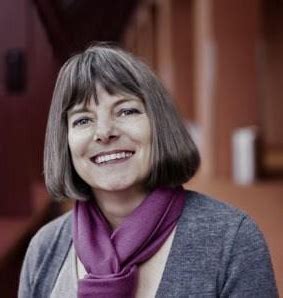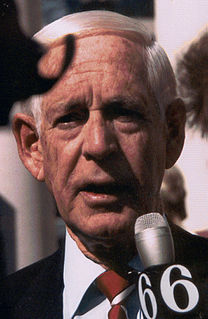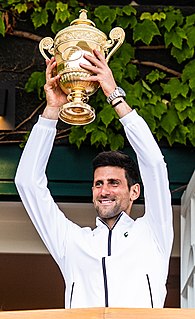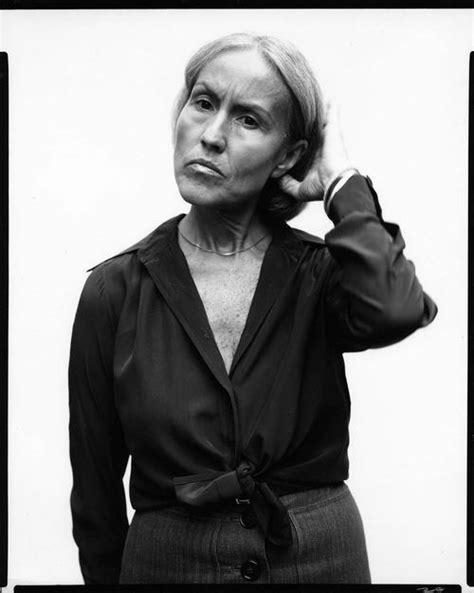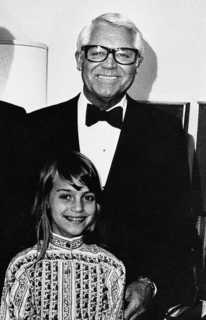A Quote by Cinda Williams Chima
So you questioned him?" Raisa prompted. "What did he say for himself?" "Well, the first thing Gillen does is steal his purse and beat him with a club." Amon said.
Related Quotes
If he even survives." She shivered, and Amon put his arm around her, drawing her into his steady warmth. "It's that bad?" Raisa nodded. "He looked...he looked awful, Amon. Willo doesn't know if he'll...She's worried about him. My mother died, and I never got to tell her that I loved her, that I finally understood - just a little anyway. If Han dies too, I don't know what I'll do.
I'll not meddle with it; it is a dangerous thing; it makes a man a coward; a man cannot steal, but it accuseth him; a man cannot swear, but it checks him; a man cannot lie with his neighbor's wife, but it detects him. 'Tis a blushing, shame -faced spirit, that mutinies in a man's bosom ; it fills one full of obstacles; it made me once restore a purse of gold that by chance I found; it beggars any man that keeps it; it is turned out of all towns and cities for a dangerous thing; and every man that means to live well endeavors to trust to himself and live without it.
I have this love for Mattie. It was formed in me as he himself was formed. It has his shape, you might say. He fits it. He fits into it as he fits into his clothes. He will always fit into it. When he gets out of the car and I meet him and hug him, there he is, him himself, something of my very own forever, and my love for him goes all around him just as it did when he was a baby and a little boy and a young man grown.
He almost said to himself that he did not like her, before their conversation ended; he tried so hard to compensate himself for the mortified feeling, that while he looked upon her with an admiration he could not repress, she looked at him with proud indifference, taking him, he thought, for what, in his irritation, he told himself - was a great fellow, with not a grace or a refinement about him.
That he liked to think of himself as a philosopher. That he questioned all things, even the most simple, to the extent that when someone passing him on the street raised his hat and said, 'Good day,' Litvinoff often paused so long to weigh evidence that by the time he'd settled on an answer the person had gone on his way, leaving him standing alone.
Some souls think that the Holy Spirit is very far away, far, far, up above. Actually he is, we might say, the divine Person who is most closely present to the creature. He accompanies him everywhere. He penetrates him with himself. He calls him, he protects him. He makes of him his living temple. He defends him. He helps him. He guards him from all his enemies. He is closer to him than his own soul. All the good a soul accomplishes, it carries out under his inspiration, in his light, by his grace and his help.
Baz [Luhrmann] paid me one of the greatest compliments ever. I don't know him, really, but when I first met him I was congratulating him on ROMEO + JULIET - which I think is a wonderful adaptation - and he said, "Oh, well we couldn't have done it without your RICHARD III, which was an inspiration!" I've never quite checked up on the dates to see whether or if, in fact, we did our film before he did his.
Who can justly say aught against Joseph Smith? I was as well acquainted with him, as any man. I do not believe that his father and mother knew him any better than I did. I do not think that a man lives on the earth that knew him any better than I did; and I am bold to say that, Jesus Christ excepted, no better man ever lived or does live upon this earth. I am his witness
This time last year I would have said Federer would beat Sampras's record. Now I'm not so sure. His aura has gone. He's not as dominant as he was, and since I beat him in Australia he's looked frustrated. Players are beginning to challenge him now, especially myself and Rafa. He's got 12 Grand Slams to his name and maybe he will beat Sampras, but now I'm here it will be tough for him.
Steven Meisel is completely consumed with what interests him. He does what he wants to do, and when something doesn't interest him, he's not afraid to say so. I think that's why you don't see his work all over the place as often as you might like to. Today he only photographs what he wants to photograph, what turns him on. He has an extraordinary eye, and his sophistication is limitless. This is a man who doesn't miss a beat.
Often nothing keeps the pupil on the move but his faith in his teacher, whose mastery is now beginning to dawn on him .... How far the pupil will go is not the concern of the teacher and master. Hardly has he shown him the right way when he must let him go on alone. There is only one thing more he can do to help him endure his loneliness: he turns him away from himself, from the Master, by exhorting him to go further than he himself has done, and to "climb on the shoulders of his teacher."
Again, after his fall, God gave him an occasion to repent and to receive mercy but he kept his stiff-neck held high. He came to him and said "Adam, Where are you?" instead of saying "What glory you have left and what dishonor you have arrived at?" After that, He asked him "Why did you sin? Why did you transgress the commandment?" By asking these questions, He wanted to give him the opportunity to say, "Forgive me." However, he did not ask for forgiveness. There was no humility, there was no repentance, but indeed the opposite.
